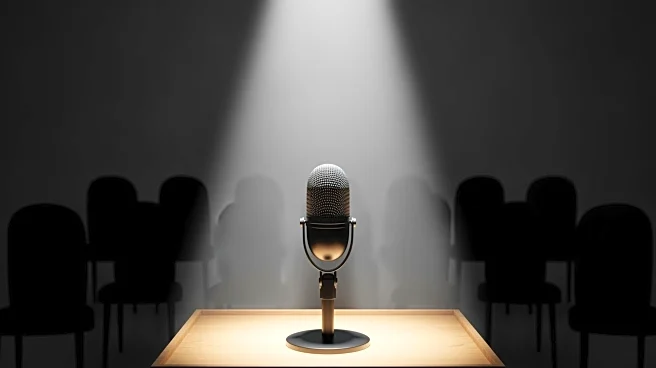What's Happening?
U.S. District Judge Sara Ellis has questioned federal officials regarding their response to ongoing protests in Chicago, particularly focusing on the use of force and the implementation of body-worn cameras.
The hearing addressed concerns about the enforcement of a temporary restraining order that restricts crowd control tactics and mandates the use of body cameras by federal agents. The judge's inquiry follows reports of excessive force used during protests, including incidents involving tear gas and pepper balls. Federal officials provided testimony on the training and protocols for handling protests and interactions with journalists.
Why It's Important?
The scrutiny of federal officials' actions during the Chicago protests highlights the ongoing debate over law enforcement practices and the protection of civil liberties. The use of force and the implementation of body-worn cameras are critical issues in ensuring accountability and transparency in law enforcement. The outcome of this inquiry could influence future policies and practices related to crowd control and the handling of protests. It also underscores the importance of judicial oversight in safeguarding citizens' rights and maintaining public trust in law enforcement agencies.
What's Next?
The judge is expected to continue questioning federal officials and may issue further directives to ensure compliance with the restraining order. The inquiry could lead to changes in federal law enforcement practices, particularly regarding the use of force and the deployment of body-worn cameras. The findings may also prompt broader discussions on police reform and the need for clear guidelines on the handling of protests. Stakeholders, including civil rights organizations and law enforcement agencies, will likely engage in ongoing dialogue to address these issues.
Beyond the Headlines
The inquiry into federal officials' response to the Chicago protests raises broader questions about the balance between security and civil liberties. The use of force during protests is a contentious issue that requires careful consideration of ethical and legal implications. The case highlights the need for comprehensive training and oversight to ensure that law enforcement actions align with democratic principles and respect for human rights.












